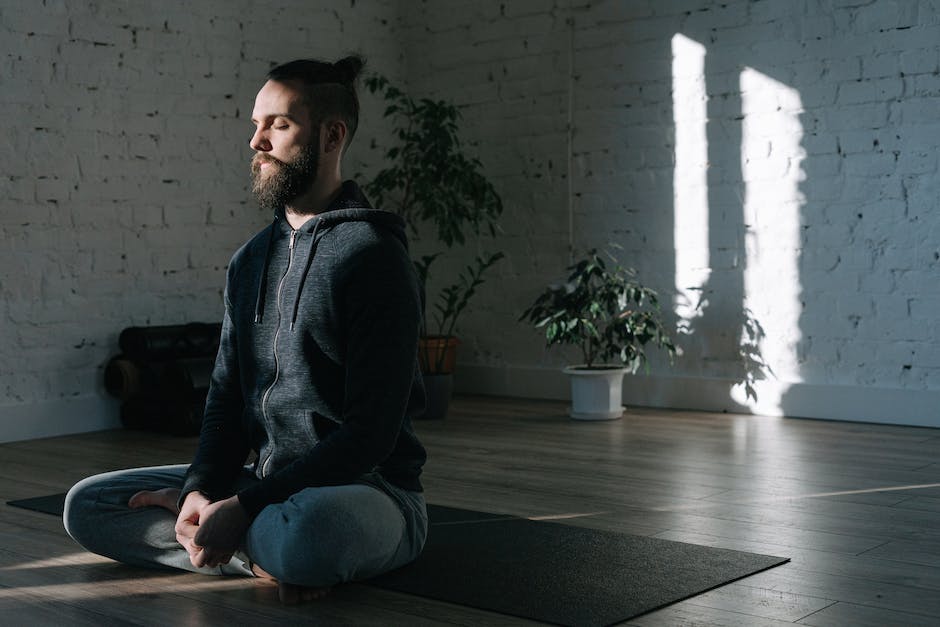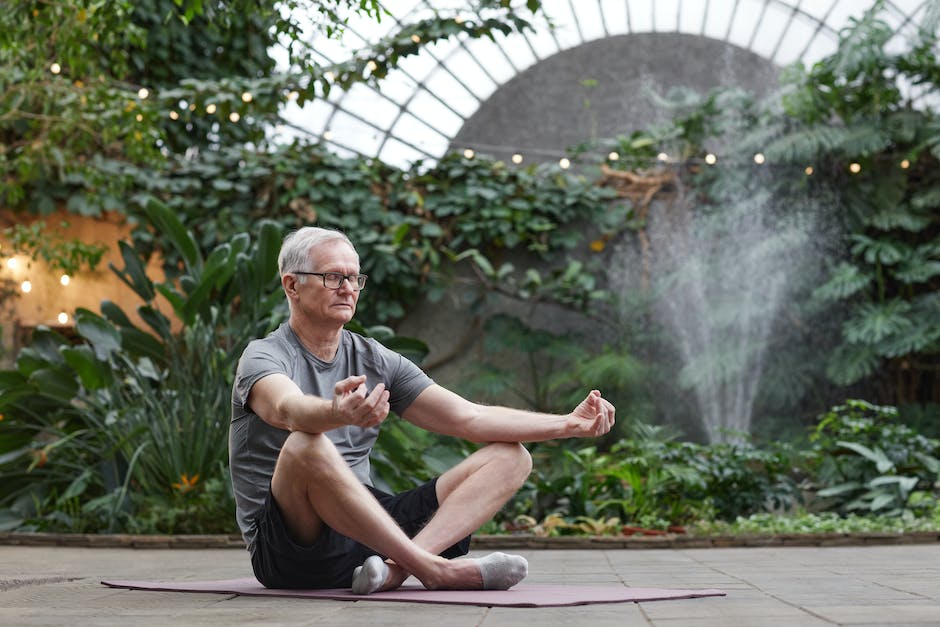Cannabis and yoga, two words that might not seem like they go hand in hand. Yet, in recent years, the combination of these two distinct practices has gained popularity, creating a unique and dynamic experience for those seeking relaxation, mindfulness, and greater self-awareness. While yoga has long been known for its ability to calm the mind, relieve stress, and improve physical well-being, cannabis, with its calming and therapeutic effects, has found its way into the yoga world, enhancing the overall experience for many practitioners.
At first glance, some may question the compatibility of cannabis and yoga, as yoga typically promotes a clear and focused mind. However, proponents of cannabis-infused yoga argue that the plant can deepen the mind-body connection, allowing practitioners to experience a heightened state of relaxation and introspection. By incorporating cannabis into their yoga practice, individuals may find it easier to let go of distractions, quiet their thoughts, and truly immerse themselves in the present moment.
It is important to note that cannabis-infused yoga is not about getting high and losing control. Instead, it is about using the plant mindfully and intentionally to enhance the overall experience and benefits of yoga. Many practitioners opt for cannabis strains that are low in THC (the psychoactive compound) and high in CBD (the non-intoxicating compound), allowing them to reap the therapeutic benefits without feeling intoxicated or impaired.
As the stigma surrounding cannabis continues to evolve, more and more yoga studios, retreats, and wellness centers are embracing this unique combination. Cannabis-infused yoga classes often start with a guided meditation, allowing participants to set their intentions for the practice ahead. From there, gentle and mindful movements are incorporated, synchronized with deep, intentional breaths. These movements, coupled with the calming effects of cannabis, can help individuals find a deeper sense of inner peace and tranquility.
While the combination of cannabis and yoga is gaining traction, it is important to approach this practice with caution and respect. It is advisable to consult with a knowledgeable yoga instructor and a healthcare professional before embarking on a cannabis-infused yoga journey, especially if you have any underlying medical conditions or concerns. Furthermore, always ensure that you are practicing in a safe and legal environment, adhering to local regulations.
In the following sections of this blog post, we will delve deeper into the benefits, precautions, and different practices associated with cannabis-infused yoga. Whether you are a curious beginner or a seasoned yogi looking to explore new dimensions of your practice, this guide will provide you with valuable insights and considerations as you embark on this unique and potentially transformative journey.
Brief overview of the increasing popularity of both cannabis and yoga

Cannabis and yoga have individually gained significant popularity in recent years, with a growing number of people embracing them as part of their wellness routines. The increasing acceptance and legalization of cannabis in various regions have opened up new possibilities for its therapeutic and recreational use. Simultaneously, yoga has seen a surge in interest due to its ability to promote physical and mental well-being.
Cannabis, often associated with relaxation and stress relief, has drawn attention from individuals seeking alternative methods for enhancing their yoga practice. Many yogis and wellness enthusiasts believe that cannabis can deepen the mind-body connection, enhance relaxation, and promote mindfulness during yoga sessions. Additionally, cannabis is known to have potential pain-relieving properties, making it a potential adjunct to yoga for those dealing with physical discomfort or injuries.
The surge in popularity of yoga as a holistic practice has seen an increasing number of people incorporating cannabis into their mindfulness routines, whether for healing, relaxation, or simply to enhance their overall experience. Yoga provides a peaceful and serene environment, allowing individuals to better connect with their bodies and minds. When combined with cannabis, practitioners may find that the plant’s therapeutic effects help them attain a greater state of calmness and focus during their yoga practice.
Furthermore, both cannabis and yoga share common underlying principles regarding holistic well-being. They both encourage individuals to prioritize self-care and introspection, aiming to enhance physical, mental, and emotional wellness. Incorporating cannabis into a yoga practice can complement the existing philosophies and values of the discipline, adding another layer of potential healing and self-discovery.
It is worth noting that the combination of cannabis and yoga is a personal choice and may not be suitable for everyone. It is crucial for individuals interested in exploring this synergy to be informed about their local laws and regulations regarding cannabis use. Additionally, it is essential to approach this combination mindfully and to be aware of the potential effects and variations in individual responses.
In conclusion, the increasing popularity of both cannabis and yoga has paved the way for an intriguing merging of the two practices. Many individuals find that incorporating cannabis into their yoga practice enhances relaxation, mindfulness, and a deeper mind-body connection. However, it is important to approach this combination with caution and respect, ensuring compliance with legalities and being aware of personal responses. As cannabis and yoga continue to intertwine, it offers another avenue for individuals to explore holistic wellness and find their unique path to Zen heaven.
Mention of the growing interest in combining the two practices
In recent years, there has been a noticeable surge of interest in combining two seemingly contrasting practices: cannabis consumption and yoga. While yoga has long been known for its focus on mindfulness, tranquility, and physical well-being, cannabis has been associated with relaxation and a sense of euphoria. However, as unconventional as it may seem, this unique pairing has garnered a devoted following and has established its place within the realm of alternative wellness.
Advocates of combining cannabis and yoga argue that the use of marijuana can enhance the overall yoga experience. Proponents claim that cannabis can help individuals achieve a deeper state of relaxation and focus, allowing them to delve into their practice with heightened awareness and concentration. Additionally, it is believed that cannabis can help alleviate physical tension and discomfort, facilitating more fluid movements and improved flexibility during yoga sessions.
With the legalization of cannabis in certain regions, an increasing number of yoga studios and wellness centers have started offering “ganja yoga” classes. These specialized sessions typically involve the use of cannabis products before or during the practice, enabling participants to explore the synergistic effects that arise from combining the two. Some classes incorporate cannabis-infused oils or topical creams to enhance the sensory experience and promote a deeper mind-body connection.
However, it’s important to emphasize that this combination may not be suitable for everyone, given the potential psychoactive effects of cannabis. It is widely recommended that individuals interested in exploring cannabis-infused yoga should consult with a qualified yoga instructor and consider their own physical and mental wellness before diving into this practice.
As the interest in alternative wellness practices grows, it is no surprise that cannabis and yoga have formed an unexpected partnership. While opinions on this combination vary, the undeniable appeal lies in the potential for a more profound and immersive yoga experience. For those seeking a unique and alternative way to explore mindfulness, the convergence of cannabis and yoga offers a new path towards achieving zen-like harmony of the body and mind.
Introduce the idea of exploring the benefits and considerations of combining cannabis and yoga

Cannabis and yoga may not seem like an obvious pairing, considering yoga’s long-standing association with health, mindfulness, and spirituality. However, in recent years, there has been a growing interest in exploring the benefits and considerations of incorporating cannabis into a yoga practice.
For centuries, yoga has been used as a means to achieve physical, mental, and spiritual well-being. It offers practitioners a way to connect with their bodies, minds, and the world around them. On the other hand, cannabis, particularly strains containing CBD (cannabidiol) or low levels of THC (tetrahydrocannabinol), is known for its potential calming and relaxing effects.
When used mindfully and responsibly, cannabis may enhance the yoga experience for some individuals. Many practitioners have reported a deeper sense of relaxation, heightened focus, and increased body awareness when combining cannabis with their yoga practice. It can help to create a more receptive and meditative state, allowing practitioners to dive deeper into their practice and experience a greater sense of calm and presence.
It is important to note that incorporating cannabis into yoga is a personal choice, and it is not suitable for everyone. Some people may find that cannabis enhances their yoga practice, while others may find it distracting or counterproductive. It is essential to listen to your body and be aware of how cannabis affects you both physically and mentally. It is recommended to start with low doses, experiment in a safe environment, and consult with a healthcare professional if you have any concerns or pre-existing medical conditions.
Moreover, it is crucial to respect the legal framework surrounding cannabis in your area and adhere to any regulations or restrictions. Laws regarding cannabis use vary from country to country and even within different states or provinces, so it is essential to educate yourself on the legalities before incorporating cannabis into your yoga practice.
In conclusion, the combination of cannabis and yoga is an emerging trend that offers potential benefits for some individuals. While it can deepen relaxation, focus, and body awareness, it is important to approach this pairing with mindfulness, respect for personal limits, and knowledge of legalities. Ultimately, the decision to integrate cannabis into your yoga practice should be guided by personal preferences and wellness goals, ensuring it aligns with your path towards a more balanced and harmonious life.
The historical connection between cannabis and spirituality
In recent years, the convergence of cannabis and yoga has been gaining significant attention in the wellness community. While the use of cannabis in yoga classes may seem relatively new and controversial, the historical connection between cannabis and spirituality actually dates back centuries.
Ancient civilizations, particularly in the Indian subcontinent, have long embraced the healing properties of cannabis for spiritual purposes. In India, cannabis, also known as ganja or bhang, holds deep roots in Hindu mythology and spiritual practices. It is often believed to have healing and transformative properties that aid in meditation, relaxation, and deepening one’s connection to higher consciousness.
The use of cannabis in ancient spiritual rituals is not limited to India alone. Various religious and spiritual traditions across different cultures have incorporated cannabis as a tool to help practitioners achieve states of enlightenment, introspection, and transcendence. From the Rastafarian tradition in Jamaica to the indigenous spiritual practices of some Native American tribes, cannabis has been regarded as a sacred plant that can heighten spiritual experiences.
Historical texts and scriptures further attest to the role of cannabis in spiritual practices. The ancient Hindu text known as the Atharva Veda mentions cannabis as one of the five sacred plants with medicinal qualities. Similarly, the ancient Chinese text called the Shennong Ben Cao Jing classifies cannabis as a superior herb with various spiritual and therapeutic properties.
It is important to note that the historical connection between cannabis and spirituality is not limited to yoga alone. However, the combination of cannabis and yoga has become a particularly popular pairing in recent times due to their shared focus on relaxation, mindfulness, and expanding consciousness.
By incorporating cannabis into yoga practice, some individuals believe they can deepen their mind-body connection, ease physical tension, ignite creativity, and enhance their overall spiritual experience. Proponents argue that cannabis can help calm the mind, enabling practitioners to enter a more focused and meditative state during their yoga practice. For others, cannabis may serve as a natural aid for releasing physical and emotional tension, allowing for a more profound experience of relaxation and self-reflection.
It’s essential to recognize that the use of cannabis in yoga is a personal choice, and its effects can vary widely from person to person. As with any substance, responsible and mindful consumption is crucial. It is important to respect individual preferences and beliefs, ensuring a safe and welcoming space for all individuals who choose to incorporate cannabis into their yoga practice.
In conclusion, while the convergence of cannabis and yoga may be considered controversial by some, it is essential to acknowledge the historical connection between cannabis and spirituality. Dating back centuries, cannabis has been used as a tool for deepening spiritual experiences and promoting relaxation and mindfulness. As the contemporary wellness community explores the potential benefits of this combination, it is crucial to approach the subject with an open mind and a respect for diverse cultural and spiritual traditions.
Discuss the ancient use of cannabis in spiritual and religious practices
Throughout history, cannabis has been intertwined with spirituality and religious practices in various cultures around the world. The ancient use of cannabis for spiritual purposes dates back thousands of years, with evidence found in archaeological discoveries, religious texts, and artwork.
One notable example is the ancient Hindu scriptures known as the Vedas, which mention cannabis as one of the five sacred plants. In these texts, cannabis, also known as “bhang,” is said to be a gift from the gods and is associated with the deity Shiva. It is believed that Shiva himself used cannabis to enhance his meditation and attain a state of heightened consciousness.
Similarly, in ancient Chinese Taoist traditions, cannabis was used as part of ritual practices to facilitate deep meditation and spiritual experiences. The substance, known as “ma,” was believed to open the gateways to spiritual realms and allow practitioners to connect with higher consciousness.
The use of cannabis in indigenous religious practices is also prevalent. Native American tribes, such as the Lakota Sioux and the Ojibwe, have a long history of incorporating cannabis into their spiritual ceremonies. The plant is seen as a sacred gift from the Earth, and it is believed to aid in communication with ancestors and spirits during rituals.
In more recent times, the Rastafari movement emerged in Jamaica, where cannabis, referred to as “ganja,” plays a central role in their religious practices. Rastafarians believe that cannabis is a sacrament that helps them connect with their inner selves, achieve spiritual clarity, and deepen their understanding of their faith.
While the use of cannabis in spiritual and religious practices varies across different cultures and traditions, the overarching theme is the belief that it can serve as a tool for introspection, relaxation, and connection with the divine. The plant’s ability to induce a sense of calmness and relaxation makes it a popular choice among individuals seeking to enhance their meditation practices or tap into their spiritual side.
However, it’s important to note that the modern usage of cannabis in spiritual practices should be approached with caution and respect. As legality and regulations surrounding cannabis differ across regions, it’s crucial to adhere to the local laws and guidelines.
In conclusion, the ancient use of cannabis in spiritual and religious practices spans cultures and has left a significant mark on human history. Whether used as a means to achieve spiritual enlightenment, connect with higher consciousness, or enhance meditation practices, cannabis continues to intrigue and inspire individuals on their spiritual journeys.
Highlight its presence in the history of yoga and meditation

Cannabis and Yoga: A Match Made in Zen Heaven
As we dive deeper into the realms of holistic health and wellness, the synergy between cannabis and yoga has recently gained a significant amount of attention. While some may view the combination with skepticism, it is important to acknowledge the historical presence of cannabis in the world of yoga and meditation.
Dating back thousands of years, cannabis has been used in various spiritual practices around the world. In ancient India, yogis and sadhus would incorporate the use of cannabis to enhance their meditation and connection with the divine. It was believed that cannabis had the ability to quiet the mind, promote relaxation, and facilitate a heightened sense of awareness.
In the Hindu tradition, cannabis, known as “ganja” or “bhang,” has been intertwined with spiritual practices for centuries. It was often consumed in the form of infused drinks or smoked during religious ceremonies and festivals. Yogis and practitioners would use cannabis as a tool to induce a state of deep relaxation, allowing them to delve into their practice with a heightened sense of self-awareness.
Furthermore, cannabis was believed to unlock the “third eye” or the intuitive and spiritual center of the body. This concept aligns perfectly with the goals of yoga – to achieve a state of inner peace, clarity, and self-realization. By incorporating cannabis into their practice, yogis sought to expand their consciousness and deepen their connection to the divine.
In recent years, modern practitioners have revived the ancient tradition of using cannabis in conjunction with yoga. Known as “ganja yoga” or “cannabis-enhanced yoga,” these classes are emerging as a popular option for those seeking a unique and holistic approach to their practice. Proponents argue that cannabis can help practitioners reach a state of relaxation more easily and enhance the mind-body connection.
It is important to note that the use of cannabis during yoga is a personal choice and should be done responsibly and with caution. Each individual’s experience may vary, and it is crucial to be in tune with one’s body and mind to determine what feels right for them. As with any mind-altering substance, it is essential to be aware of the potential risks and effects, as well as to follow applicable laws and regulations.
In conclusion, the historical presence of cannabis in the world of yoga and meditation cannot be ignored. While the combination may not be for everyone, the use of cannabis during yoga has a long-standing tradition that seeks to enhance the spiritual experience and deepen practitioners’ connection with themselves. With an open mind and a conscious approach, cannabis and yoga can create a harmonious blend, promoting a sense of peace, relaxation, and self-discovery.
Explain how cannabis can enhance the yogic experience for some individuals

Cannabis and Yoga: A Match Made in Zen Heaven
For centuries, yoga has been known for its ability to promote relaxation, mindfulness, and overall well-being. The practice encourages a deep connection between the mind, body, and spirit, helping individuals find inner peace and balance in their lives. In recent years, another natural element has entered the yogic scene, offering a new perspective to enhance the yogic experience: cannabis.
While some may find it surprising, cannabis has been used for centuries in various spiritual and healing practices, including yoga. When used consciously and in moderation, cannabis can bring a unique dimension to the yogic journey, helping individuals achieve a deeper state of relaxation, increased awareness, and a stronger mind-body connection.
One of the primary reasons cannabis is believed to enhance the yogic experience is its ability to quiet the mind and reduce mental chatter. Many practitioners find it challenging to calm their thoughts and fully immerse themselves in the present moment during yoga sessions. Cannabis, with its soothing and calming effects, can help individuals achieve a more focused mindset, enabling them to let go of distractions and internal noise, bringing them into a state of deep relaxation and mindfulness.
Moreover, cannabis can also enhance the physical aspect of yoga practice. The plant’s analgesic and anti-inflammatory properties may aid in reducing muscle tension, promoting flexibility, and alleviating any discomfort or pain that may arise during challenging poses. This can be especially beneficial for individuals dealing with chronic pain conditions or physical limitations, allowing them to fully engage in their practice with greater ease and comfort.
Additionally, cannabis can heighten the sensory experience during yoga, making each movement and breath more vivid and profound. The plant’s ability to enhance sensory perception can lead to a heightened sense of body awareness, allowing yogis to delve deeper into their practice and connect more intimately with their physical selves. This amplified sensory experience can open the door to a deeper understanding of the body’s limitations and possibilities, facilitating growth and progress in one’s yoga journey.
However, it is essential to emphasize that the incorporation of cannabis into yoga is a personal choice, and not everyone may find it beneficial or aligning with their practice. It is crucial to approach cannabis and yoga mindfully, being aware of personal tolerance levels, understanding its effects on the body and mind, and using it responsibly and safely. As with any substance, moderation and self-awareness are key.
In conclusion, cannabis can serve as a unique ally to those seeking an enhanced yogic experience. By promoting relaxation, reducing mental chatter, alleviating physical discomfort, and heightening sensory perception, it can help individuals delve deeper into their practice and cultivate a stronger mind-body connection. However, it is important to remember that cannabis use during yoga is a personal choice and should be approached mindfully, with a focus on responsible consumption and self-awareness.
The mind-body connection
The mind-body connection plays a vital role in both the practice of yoga and the consumption of cannabis. Both of these ancient traditions recognize the intricate interplay between the mind and the body, and how they influence each other’s well-being.
In the context of yoga, the mind-body connection refers to the awareness and unity of the physical body, breath, and the mind’s state. Through the practice of asanas (yoga postures), pranayama (breathing techniques), and meditation, individuals can cultivate a deep sense of presence and embodiment. The mind becomes more attuned to the sensations and movements of the body, enabling practitioners to explore their physical and mental boundaries, and ultimately find balance and harmony within themselves.
On the other hand, cannabis has been known to enhance the mind-body connection by promoting relaxation, introspection, and heightened sensory awareness. Its psychoactive properties can induce a state of calmness and tranquility, allowing individuals to connect more deeply with their bodies and the present moment. Cannabis can help release tension, increase focus, and elevate the overall yoga experience.
When combined, the synergistic effects of yoga and cannabis can amplify the mind-body connection, leading to profound experiences of physical and mental well-being. Some practitioners find that incorporating cannabis into their yoga practice enhances their ability to tune inwards and achieve a state of deep relaxation. It can also help to alleviate physical discomfort, allowing for a more fluid and enjoyable practice.
However, it is important to note that the use of cannabis during a yoga practice should be approached with caution and mindfulness. Just like any other substance, it can have different effects on different individuals. It is crucial to respect one’s own sensitivity and personal boundaries when exploring the combination of yoga and cannabis.
In conclusion, the mind-body connection is central to both yoga and cannabis. The practices of yoga and the consumption of cannabis can complement each other, providing individuals with a unique gateway to explore their inner selves. However, it is imperative to approach this combination responsibly and mindfully, taking into consideration one’s own personal preferences, sensitivities, and the laws and regulations surrounding cannabis usage in their respective regions.

